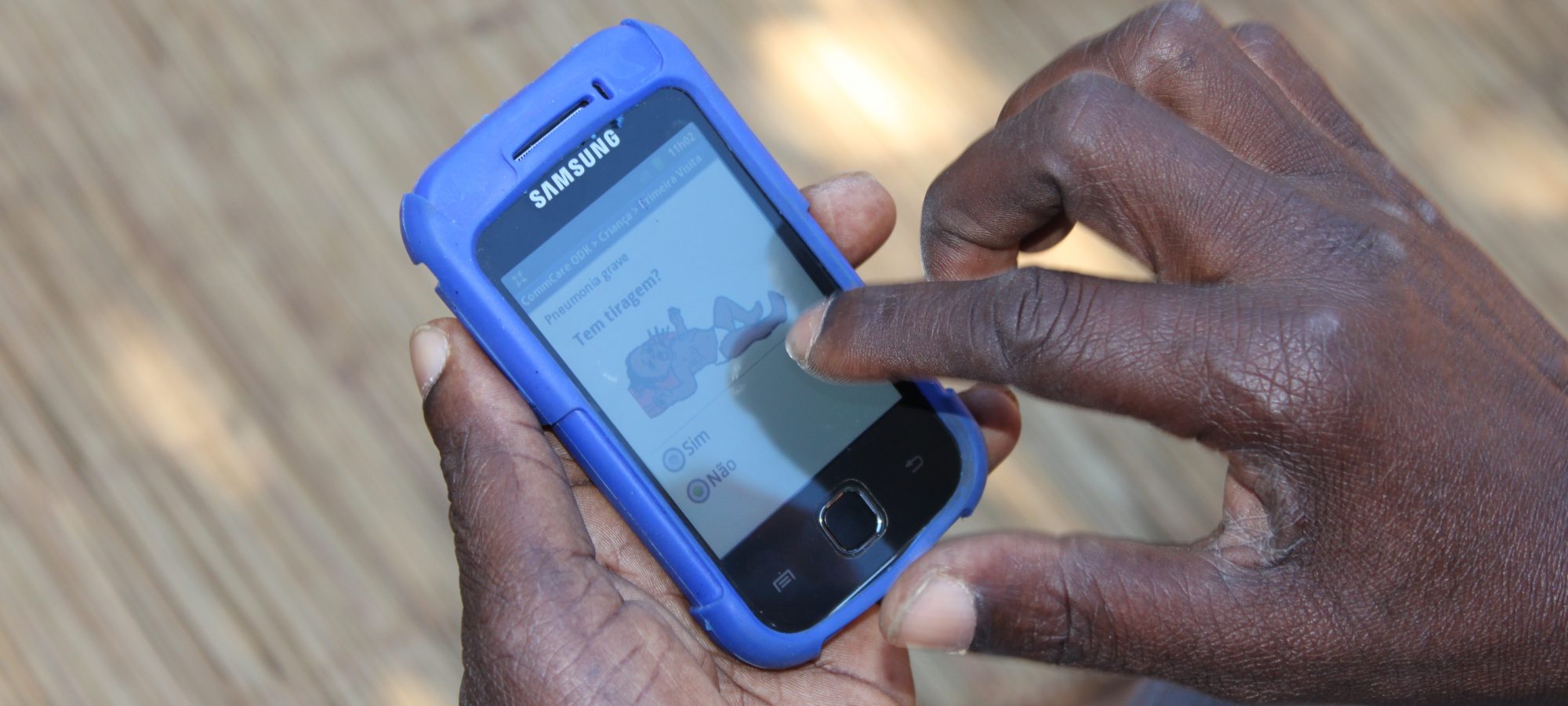In recent years, there has been a rapid proliferation of mobile phone applications. There seems to be one for everything, from daily reminders to complex navigation. But while most of us don’t think of phone applications as lifesaving tools, in some remote communities where healthcare access is limited, that is exactly what they are.
In many remote villages in Mozambique, community health workers are the first point of contact when a child gets sick. They are trained to diagnose and treat children under five years for some of the deadliest conditions – pneumonia being chief among them – and provide referrals to health facilities for severe conditions.
Community health workers, or Agentes Polivalentes Elementares (APEs) as they are known locally, have been highly effective at bringing healthcare closer to people living in the poorest and most remote communities. However, they face a number of challenges carrying out their work. They often lack the tools necessary to properly assess symptoms, diagnose and treat childhood illnesses and have had limited contact with their supervisors.
Malaria Consortium has been testing the utility of mobile phone applications as a means to improve the motivation and confidence of community health workers who face these obstacles every day.
How are the phones used?
APEs are given a smartphone that comes preloaded with an app called ‘inSCALE APE CommCare’. This application helps them carry out their daily work.
Firstly, this app acts as an interactive job aid, guiding them through all steps of diagnosis, treatment and referral. For pneumonia, the app asks a series of questions regarding symptoms and uses a special counter that helps to assess the respiratory rate of the child. If the child is found to have pneumonia symptoms, the app provides educational messages and treatment instructions for both APE and caregiver. Recommendations for follow-up visits or referrals are given based on the diagnosis and vaccination status of the patient.
Patient data, including diagnosis and vaccination status, is stored on the phone along with weekly aggregated data and medicine stock levels, all of which are sent to the APE’s supervisor. This is then collated into statistics at the provincial and district levels that provide real-time data available to health officials. After submitting the data, the APEs receive feedback messages thanking them for their work.
Communication with supervisors and peers is also significantly improved through the phones. Each APE receives a monthly automated credit allowance for making calls – an initiative that bridges the gap between health workers and their supervisors, ensuring closer coordination and improved performance. Periodic motivational messages also can help increase a sense of collective identity and purpose.
Has it been successful?
The results have been encouraging. A process evaluation was carried out in Mozambique, which showed that 68 percent of APEs always use CommCare in their work. Respondents reported that the application helped them remember the symptoms to look for.
The three most favoured aspects of the inSCALE APE CommCare app were the job aid for newborns, children and pregnant women; improved respiratory rate timer; and treatment and dosing instructions. Mobile phones were also found to improve the community standing and legitimacy of the health workers.
At the heart of the application’s success was its user-centred design. The Mozambique Ministry of Health and the community health workers themselves were heavily involved in each step of the design process, ensuring that the app remained easy-to-use and intuitive. However, most APEs and supervisors were unaccustomed to using smart phones, so introductory sessions were held in addition to the existing CommCare training. This allowed for efficient use of the phone and its software.
You can learn more about the CommCare app by watching the demonstration video below:
*Malaria Consortium’s inSCALE project is funded by the Bill & Melinda Gates Foundation and carried out in partnership with the London School of Hygiene and Tropical Medicine and University College London.
Read more about mHealth in Mozambique here
Ilya Jones is the Communications Officer in London
